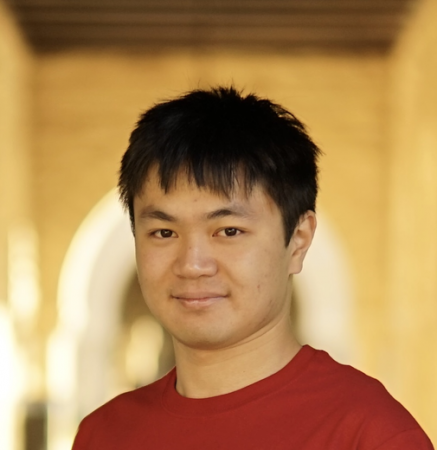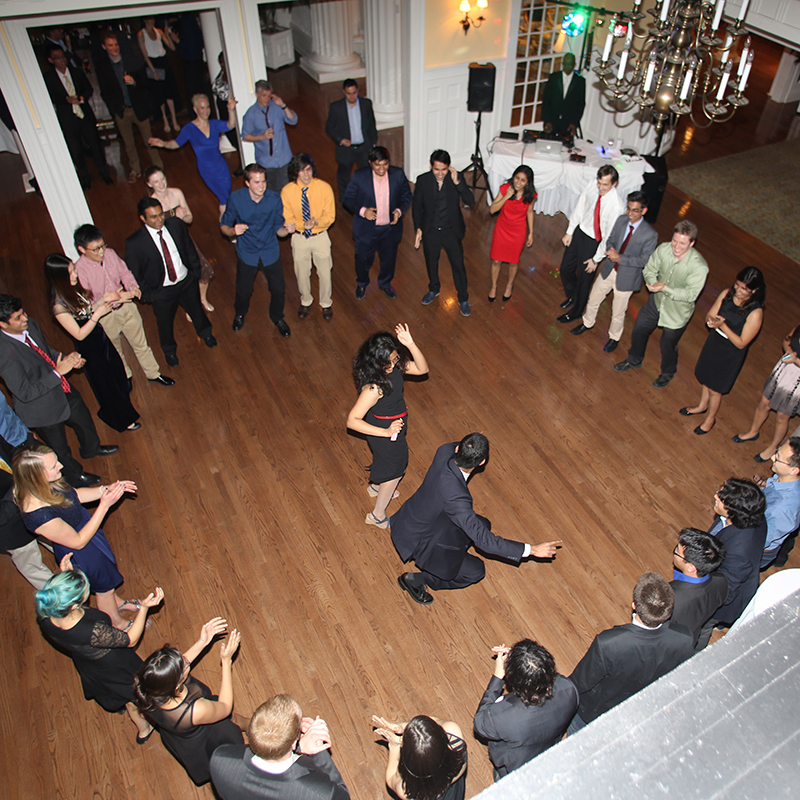Tendon Driven Foam Hands
Abstract: There has been great progress in soft robot design, manufacture, and control in recent years, and soft robots are a tool of choice for safe and robust handling of objects in conditions of uncertainty. Still, dexterous in-hand manipulation using soft robots remains a challenge. This talk introduces a novel class of soft robots in [...]
Knowledge Infused Deep Learning
Abstract: This talk is motivated by the following thesis: Background knowledge is key to intelligent decision making. While deep learning methods have made significant strides over the last few years, they often lack the context in which they operate. Knowledge Graphs (and more generally multi-relational graphs) provide a flexible framework to capture and represent knowledge [...]
Carnegie Mellon University
Towards a Good Representation For Reinforcement Learning
Abstract: Deep reinforcement learning has achieved many successes over the recent years. However, its high sample complexity and the difficulty in specifying a reward function have limited its application. In this talk, I will take a representation learning perspective towards these issues. Is it possible to map from the raw observation, potentially in high dimension, [...]
Yes, That’s a Robot in Your Grocery Store. Now what?
Abstract: Retail stores are becoming ground zero for indoor robotics. Fleet of different robots have to coexist with each others and humans every day, navigating safely, coordinating missions, and interacting appropriately with people, all at large scale. For us roboticists, stores are giant labs where we're learning what doesn't work and iterating. If we get [...]
Learning to Reconstruct 3D Humans
Abstract: Recent advances in 2D perception have led to very successful systems, able to estimate the 2D pose of humans with impressive robustness. However, our interactions with the world are fundamentally 3D, so to be able to understand, explain and predict these interactions, it is crucial to reconstruct people in 3D. In this talk, I [...]
Carnegie Mellon University
Eye Gaze for Assistive Manipulation
Abstract: Full robot autonomy is the traditional goal of robotics research. To work in a human-inhabited world, however, robots will often need to collaborate with humans. Many scenarios require human users to teleoperate robots to perform tasks, a paradigm that appears everywhere from space exploration, to disaster recovery, to assistive robotics. This collaboration enables tasks [...]
CANCELLED
Abstract: Before learning robots can be deployed in the real world, it is critical that probabilistic guarantees can be made about the safety and performance of such systems. In recent years, safe reinforcement learning algorithms have enjoyed success in application areas with high-quality models and plentiful data, but robotics remains a challenging domain for scaling [...]
Deep Learning for Understanding Dynamic Visual Data
Abstract: Perceiving dynamic environments from visual inputs allows autonomous agents to understand and interact with the world and is a core topic in Artificial Intelligence. The success of deep learning motivates us to apply deep learning techniques to the perception of dynamic visual data. However, how to design and apply deep neural networks to effectively [...]
Carnegie Mellon University
Stability-Centric Mechanics for Rigid Body Manipulation
Abstract: The repertoire of human manipulation is filled with creative use of contacts to move the object about the hand and the environment. It’s the combination of these skills that makes human manipulation dexterous. However, in most robotic applications the robot just fix all contact points on the object and do grasping. Reliable robot manipulation [...]
Optimizing for coordination with people
https://youtu.be/AQ-w5o2oGI8 Abstract: From autonomous cars to quadrotors to mobile manipulators, robots need to co-exist and even collaborate with humans. In this talk, we will explore how our formalism for decision making needs to change to account for this interaction, and dig our heels into the subtleties of modeling human behavior -- sometimes strategic, often irrational, [...]
Analyzing Grasp Contact via Thermal Imaging
Abstract: Grasping and manipulating objects is an important human skill. Because contact between hand and object is fundamental to grasping, measuring it can lead to important insights. However, observing contact through external sensors is challenging because of occlusion and the complexity of the human hand. I will discuss the use of thermal cameras to capture [...]
Numerical Methods for Things That Move: From Quadrupeds to Starships
Abstract: Recent advances in motion planning and control have led to dramatic successes like SpaceX’s rocket landings and Boston Dynamics’ humanoid robot acrobatics. However, the underlying numerical methods used in these applications are typically decades old, not tuned for high performance on planning and control problems, and are often unable to cope with the types [...]
Carnegie Mellon University
Combining Multiple Heuristics: Studies on Neighborhood-base Heuristics and Sampling-based Heuristics
Abstract: This thesis centers on the topic of how to automatically combine multiple heuristics. For most computationally challenging problems, there exist multiple heuristics, and it is generally the case that any such heuristic exploits only a limited number of aspects among all the possible problem characteristics that we can think of, and by definition, is [...]
Fast Foveation for LIDARs, Projectors and Cameras
Abstract: Most cameras today capture images without considering scene content. In contrast, animal eyes have fast mechanical movements that control how the scene is imaged in detail by the fovea, where visual acuity is highest. This concentrates computational (i.e. neuronal) resources in places where they are most needed. The prevalence of foveation, and the wide [...]
POSTPONED – 2020 Robotics Institute Semi-formal
Due to uncertainty and developing conditions of the coronavirus (COVID-19) outbreak, the Robotics Institute at Carnegie Mellon has determined it best to postpone our planned RI Semi-formal activity on March 20, 2020. More information will be sent out once a new date has been selected. __________________POSTPONED _____________________ By invitation only: The 2020 Robotics Institute Semi-formal [...]
Carnegie Mellon University
Robotic Grasping in the Wild
Zoom Link Abstract Robotics and artificial intelligence have witnessed tremendous progress in the past decade. Yet, we are still far from building the general purpose robot butler that can autonomously operate in homes and help with manipulation tasks like household chores. Grasping is an important action primitive for manipulation and needs to generalize to unstructured [...]
Carnegie Mellon University
Resource-constrained learning and inference for visual perception
Zoom Link Abstract Real-world applications usually require computer vision algorithms to meet certain resource constraints. In this talk, I will present evaluation methods and principled solutions for both cases of training and testing. First, I will talk about a formal setting for studying training under the non-asymptotic, resource-constrained regime, i.e., budgeted training. We analyze the [...]
Carnegie Mellon University
Multi-hypothesis iSAM2 for Ambiguity-aware Passive and Active SLAM
Archived video Abstract Simultaneous localization and mapping (SLAM) is the problem of estimating the state of a moving agent with sensors on it while simultaneously reconstructing a map of its surrounding environment, which has been a popular research field due to its wide applications. As many state-of-the-art SLAM algorithms can already achieve high accuracy in [...]

















